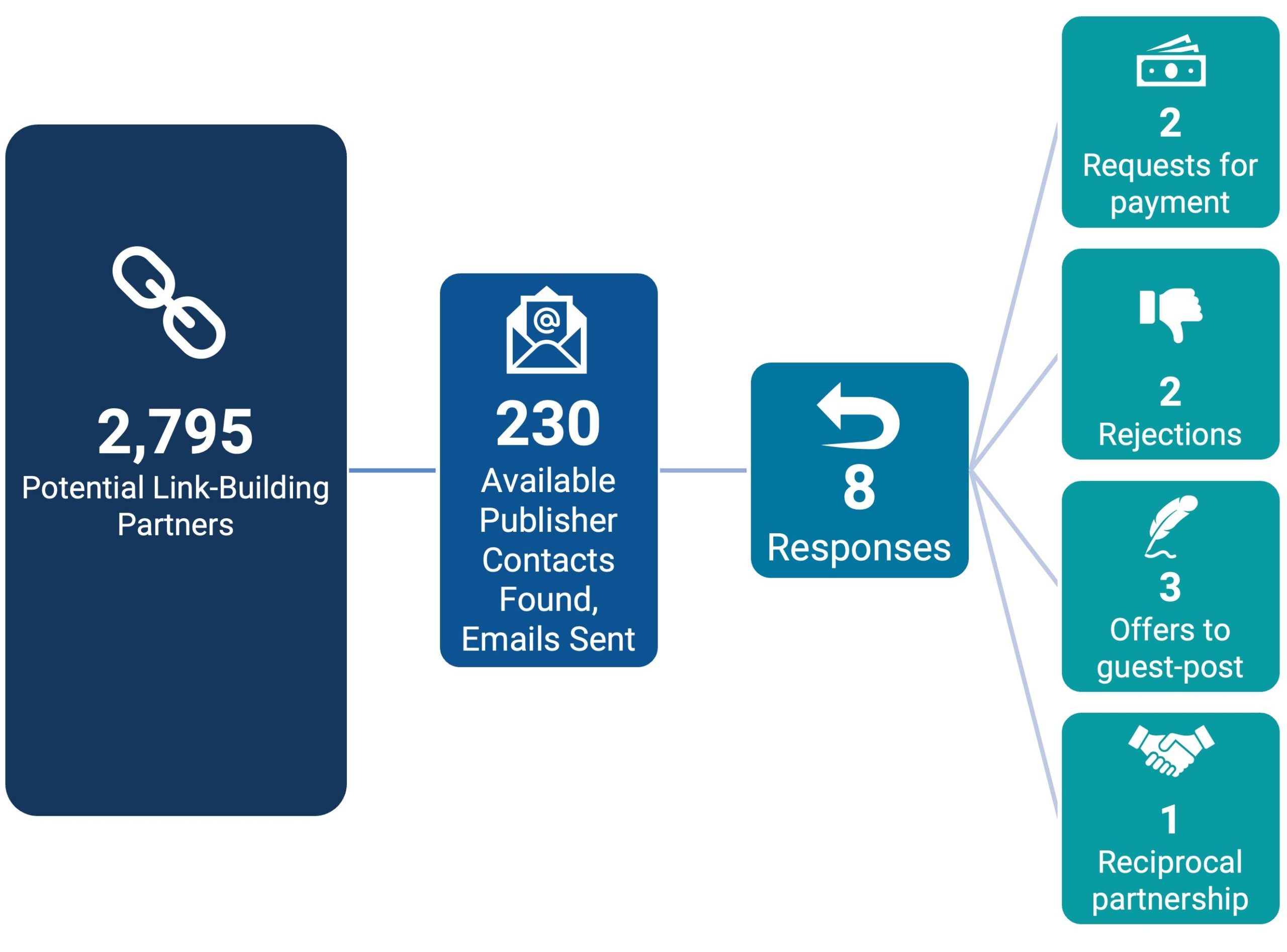Link Building: Is it a total racket?
 For every brand on the internet, building SEO credibility is key. A major part of that is how many other websites have links to your domain and content. This makes sense; the more links to your site, the more other pages and brands “know about you.” It increases your weight in the digital universe and the perceived trustworthiness of your URLs. When your content is linked to, your brand is established as an authority. The more links to your site, the better your current and future content will rank in the SERPs.
For every brand on the internet, building SEO credibility is key. A major part of that is how many other websites have links to your domain and content. This makes sense; the more links to your site, the more other pages and brands “know about you.” It increases your weight in the digital universe and the perceived trustworthiness of your URLs. When your content is linked to, your brand is established as an authority. The more links to your site, the better your current and future content will rank in the SERPs.
However, the act of link building is a practice of acquiring those external links leading to your page. This is also natural – what brand doesn’t want more weight, authority, and page ranking? However, actually getting those links is harder than it sounds. And going about it like a normal marketer, reaching out to publishers to host your content and share your links? You may start to feel like the whole game is a racket.
Challenges with the Traditional Approach to Link Building
What do you need from a link building strategy? You need other well-known brands to publish your work and link back to your site. So you start reaching out to publishers to ask if they want to partner up. Simple, right? If you just scoffed a little, we know you’ve been there – because so have we. Finding publishers and contact information is time-consuming. And actually reaching publishers who give a positive response? When publishers do respond, they want money, serious money, for every link.
Let’s share a little data from our recent foray into a genuine link-building effort.
The Real Data on Link Building

- 2,795 potential link-building partners
- 230 available publisher contacts found
- 230 emails sent
- 8 responses
- 2 requests for payment, 2 rejections, 3 offers to guest-post, 1 reciprocal partnership
Our Location3 team recently spent 3 months trying to do link building the “official” way. We did the research and found 2,795 potential targets. Of that nearly 3-grand of potentials, we could find the contact information for only 230 publishers. Yup, less than 10%.
We sent 230 emails sharing Location3 articles requesting linking or shared links for guest-posting – the most Google-approved way to achieve link-building. From those, we got 8 responses. Again, way less than a 10% response rate.
Of those 8 responses, 2 wanted to be paid $150 or more for link placement. 3 offered to host a guest contribution. 2 said “no thank you”, but at least they sent a message, right? And 1 offered to trade links for mutual link-building benefit.
The Link Buying Racket is Alive and Well
Over a decade ago, Google started penalizing the link-building racket which, at the time, consisted of buying a place on a simple list-directory of nothing but links hosted on known and unknown domains. They started valuing only link-building that offered value to the reader, which is where the guest-posting trend began to rise. However, link-buying is still alive and well. The market is just for fewer and bigger players.
Most link-building agencies offer a pay-per-placement solution where they pay their network of publishers to host your content and links. Average costs for average DA and traffic sites range between $50 and $150 per link. High DA/traffic site links can cost upwards of $400 per link.
Even so, the only reason these agencies can offer multiple links (remember, we only got 8 responses at all) is because they have exclusive access to publisher networks and build relationships with those publishers.
Is it a racket? You bet! But that’s the way the game is played.
Business Relationships: The Answer to Links Without Ad Spend
So how can you build links without using up every scrap of your ad-spend one link at a time? The answer is business relationships. While it might cost an arm & leg for a single link with a major publisher, this isn’t the only way to link-build your way to brand credibility. After all, most brands are in the small to medium size category – and have more to gain from working together than buying into big-business link-building rackets.
Business relationships are the key to inter-linking success. Instead of reaching out to publishers, reach out to your business partners, local business associations, and smaller niche-specific publications. Instead of just asking for a link, build a relationship. For example, you might trade guest posts with your shipping partner, offering industry insights on your page and hosting a piece on smart logistics planning on your own site. Connect with the business association for your own local town and have your site and articles hosted on their smaller newsletter blogs.
You can also reach out to other brands in similar – but not quite identical – niches to share interesting articles and trade those links. Run a physical therapy office? Connect with brace manufacturers to provide professional injury recovery tips, and host a detailed review of braces on your site. Sell local hardware? Swap tips and how-to articles with a local construction company. By sharing, small to medium-sized brands can swap links and mutually build SEO credibility – without buying into the publisher link-buying racket.
Ready to get your real link-building strategy going? So are we.
Stay In Touch.
Subscribe to our monthly email newsletter.
